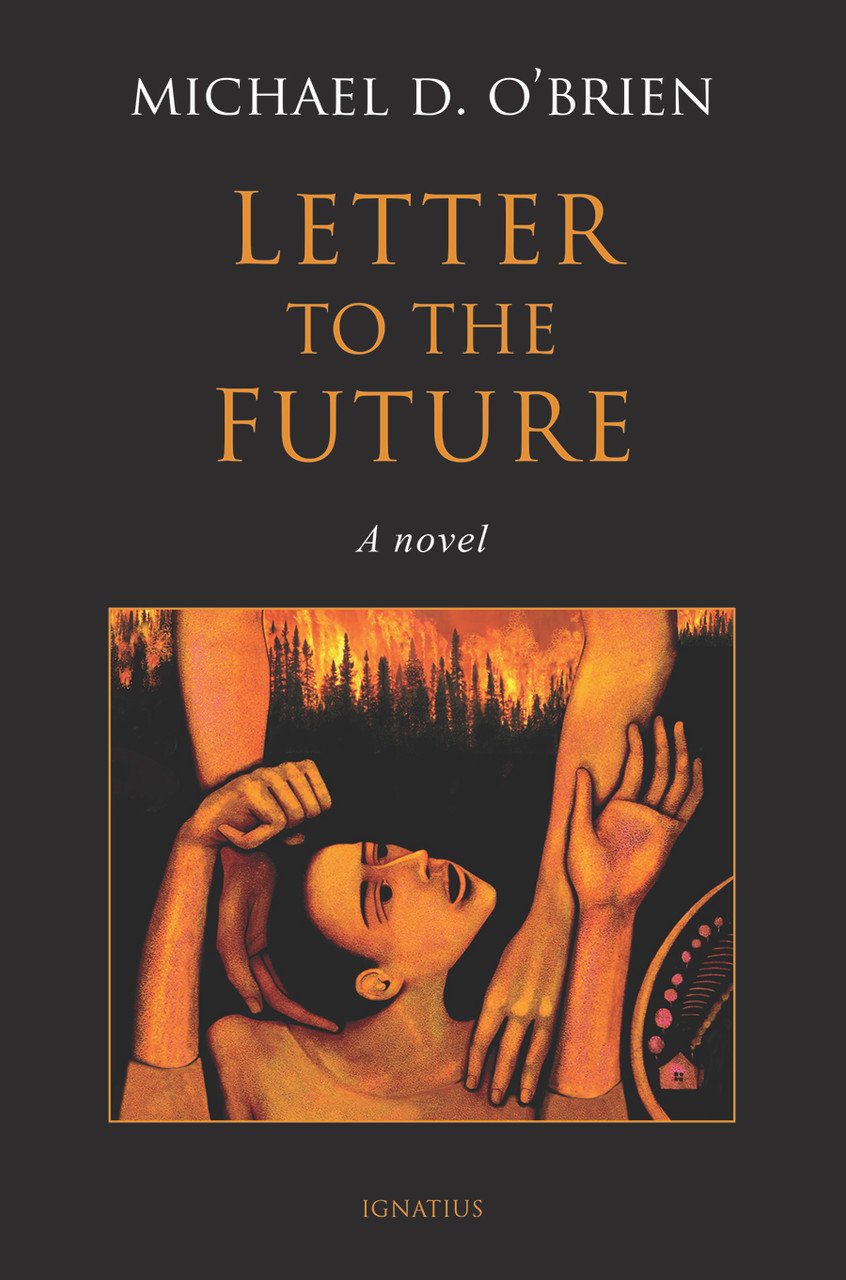Michael D. O’Brien is one of the great spiritual writers of our age. Though most of his books are novels, they invite one into a deeper contemplation of the great questions of faith and of what it means to be a disciple. Peter Kreeft, himself a great writer, says O’Brien is in “the ranks of Flannery O’Connor, Graham Greene, Evelyn Waugh and C.S. Lewis.”
I will let the reader judge, but for me O’Brien’s prophetic novels help one, in the words of St. Benedict, “listen with the ear of the heart.”
O’Brien’s most recent novel, “Letter to the Future,” is especially relevant for Catholics in America. It helps us to remember the call to abandon oneself to divine Providence, as well as grow deeper in fidelity by learning to love our neighbor wherever he plants us and through whatever hardships we may face.
A great revealing
Many believe we live in apocalyptic times. Fear is palpable. We feel helpless and as though we cannot control our own destinies, which is particularly hard for Americans.
People ask themselves and their friends: “Should we prepare for the coming civilizational collapse? What do we do when it comes?” Or, “How can we remain faithful during a persecution? What does it mean to take a stand?” Preppers buy gold, make “bug-out bags,” stock up on food and watch for signs.
It’s one thing to be prudent and prepared, if that also comes along with the recognition that such preparations can only protect one’s family in a temporary crisis. As the Psalmist says, even horses and armies (the material security of this world) cannot save.
Surviving more serious social calamities will require that people share, collaborate, sacrifice and work together to lay a foundation for new communities of life and love. Knowing that, the just “are not afraid of evil tidings; their hearts are firm, secure in the Lord” (Ps 112:7).
That is the lesson of “Letter to the Future.”
Led by Providence
In the book, O’Brien’s protagonist, Cleveland Longworth, is a disenchanted writer without a penny to his name who is taken in by the owner of a carpentry business, Rafe Morrow. Rafe, in his charity, takes him in despite Cleve having no relevant skills or experience. Through his carpentry work with Rafe, a faithful Catholic, Cleve grows in mind, body and spirit.
After Cleve and Rafe both have unexplainable dreams, they believe that they need to take their families on a trip to Cleve’s father’s cabin in rural Canada. Along the way, some unidentified event shuts down communications, and there is disorder, crime and mayhem in the streets.
Rafe and Cleve’s caravan providentially encounters others who have had similar, unexplainable dreams, and for whom it is clear God put them in each other’s path. There are whole families, abandoned children whose parents have been murdered, two female pilgrims and others.
As they seek help and security among one another, Cleve and Rafe invite them all along on the journey to the cabin.
As the group waits for the violence to end, a cataclysmic event happens that leads the group to believe (the book is ambiguous about what exactly happened) that much of humanity has been killed and that what was once civilization has been thoroughly destroyed. Their temporary shelters in the woods will be their permanent new home. They call their home “Sursum Corda” (Latin for “lift up your hearts”).
The center of life in Sursum Corda is worship. Fortunately, there is a priest with them and there are just enough supplies for Mass in a former general store close by. Life and love flow from their own makeshift “tent of meeting.” The brokenhearted are healed and a new community is built.
No need to wait for the future
“Letter to the Future” is about an apocalypse, but it is a message of hope that should be an antidote to the prevailing fear.
An apocalypse can reveal who we are as persons, not just the nature of things in the world.
How will we respond to our own moment of testing? Will we respond in fear, clinging to what is ours in the hope of survival? Or will it be in giving of ourselves that we receive peace of soul and a place in the Father’s kingdom?
Fortunately, we do not need to wait for cataclysmic events. We can, in fact, start to build a new world from the shell of the old one.
Independence might be the spirit of America. But a new world will be built on recognizing our radical dependence on one another, and that the tighter the grip we try to put around what is ours, it slips through our hands. Conversely, with open hands and open hearts we can give and receive.
Confronting with faith a seemingly apocalyptic world is how Catholics can renew this troubled nation.
Jason Adkins is host of a new Our Sunday Visitor podcast called “Catholic in America,” which explores topics related to the missionary imperative of faithful citizenship in our time. You can find “Catholic in America” on the major podcast platforms or visit catholicinamerica.osvpodcasts.com.




